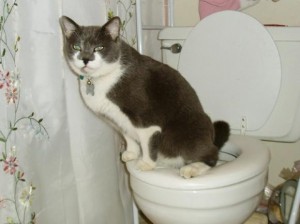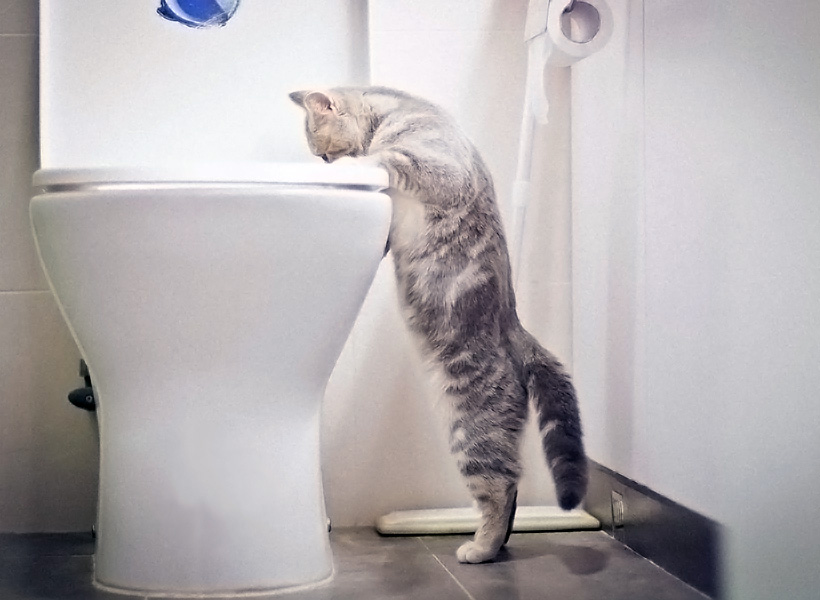Why Flushing Cat Poop Down Your Toilet Is Harmful - Tips for Correct Disposal
Why Flushing Cat Poop Down Your Toilet Is Harmful - Tips for Correct Disposal
Blog Article
What're your thoughts about Can You Flush Cat Poo or Litter Down the Toilet??

Intro
As cat proprietors, it's essential to bear in mind how we throw away our feline friends' waste. While it might appear convenient to flush cat poop down the commode, this method can have destructive consequences for both the environment and human health.
Environmental Impact
Flushing cat poop introduces damaging microorganisms and parasites into the water supply, presenting a considerable risk to marine ecosystems. These contaminants can adversely affect aquatic life and compromise water quality.
Health Risks
Along with ecological worries, purging feline waste can likewise pose health risks to human beings. Feline feces may have Toxoplasma gondii, a bloodsucker that can create toxoplasmosis-- a potentially extreme health problem, especially for expectant women and people with weakened immune systems.
Alternatives to Flushing
Luckily, there are safer and extra liable means to deal with cat poop. Think about the adhering to choices:
1. Scoop and Dispose in Trash
One of the most usual technique of disposing of pet cat poop is to scoop it into an eco-friendly bag and throw it in the garbage. Be sure to utilize a committed clutter scoop and get rid of the waste without delay.
2. Use Biodegradable Litter
Choose naturally degradable feline clutter made from products such as corn or wheat. These clutters are eco-friendly and can be securely disposed of in the trash.
3. Bury in the Yard
If you have a backyard, take into consideration hiding pet cat waste in an assigned area away from vegetable yards and water resources. Make sure to dig deep sufficient to stop contamination of groundwater.
4. Mount a Pet Waste Disposal System
Buy a family pet waste disposal system particularly designed for feline waste. These systems use enzymes to break down the waste, minimizing smell and ecological impact.
Final thought
Liable animal possession extends past providing food and shelter-- it likewise entails correct waste administration. By refraining from flushing feline poop down the bathroom and going with different disposal techniques, we can decrease our ecological footprint and shield human health and wellness.
Why You Should Never Flush Cat Poop Down the Toilet
A rose by any other name might smell as sweet, but not all poop is created equal. Toilets, and our sewage systems, are designed for human excrement, not animal waste. It might seem like it couldn’t hurt to toss cat feces into the loo, but it’s not a good idea to flush cat poop in the toilet.
First and foremost, assuming your cat uses a litter box, any waste is going to have litter on it. And even the smallest amount of litter can wreak havoc on plumbing.
Over time, small amounts build up, filling up your septic system. Most litter sold today is clumping; it is made from a type of clay that hardens when it gets wet. Ever tried to scrape old clumps from the bottom of a litter box? You know just how cement-hard it can get!
Now imagine just a small clump of that stuck in your pipes. A simple de-clogger like Drano isn’t going to cut it. And that means it’s going to cost you big time to fix it.
Parasitic Contamination
Believe it or not, your healthy kitty may be harboring a nasty parasite. Only cats excrete Toxoplasma in their feces. Yet it rarely causes serious health issues in the cats that are infected. Most people will be fine too if infected. Only pregnant women and people with compromised immune systems are at risk. (If you’ve ever heard how women who are expecting are excused from litter cleaning duty, Toxoplasma is why.)
But other animals may have a problem if infected with the parasite. And human water treatment systems aren’t designed to handle it. As a result, the systems don’t remove the parasite before discharging wastewater into local waterways. Fish, shellfish, and other marine life — otters in particular — are susceptible to toxoplasma. If exposed, most will end up with brain damage and many will die.
Depending on the species of fish, they may end up on someone’s fish hook and, ultimately on someone’s dinner plate. If that someone has a chronic illness, they’re at risk.
Skip the Toilet Training
We know there are folks out there who like to toilet train their cats. And we give them props, it takes a lot of work. But thanks to the toxoplasma, it’s not a good idea.

I ran across that review on How to Dispose of Cat Poop and Litter Without Plastic Bags while surfing around the internet. You should set aside a second to distribute this article if you liked it. I praise you for your time. Visit us again soon.
Click Here Report this page